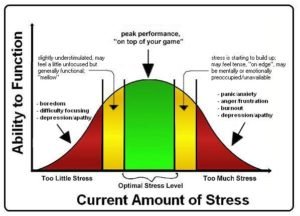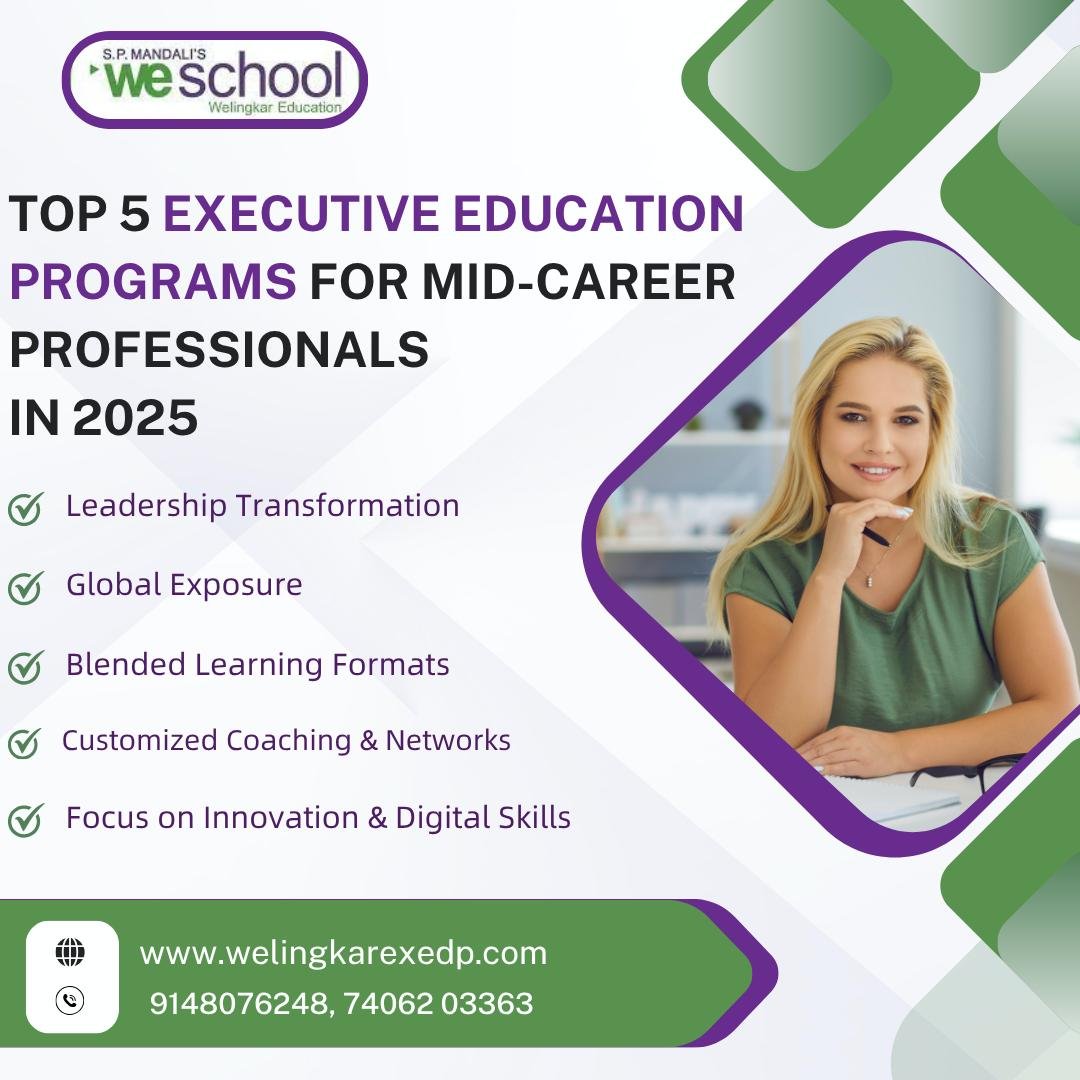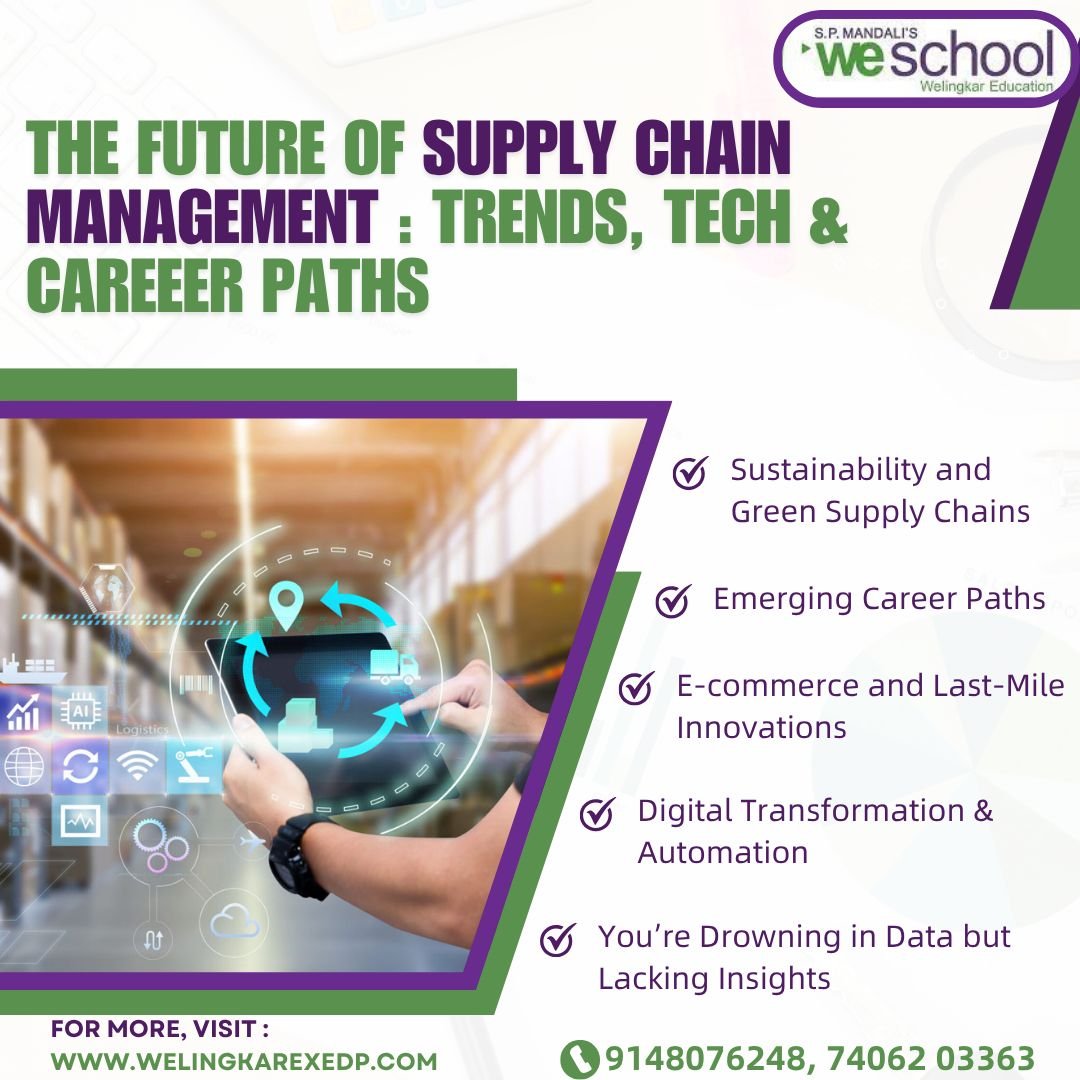There is a fundamental change in how we manage, transact, and optimize resources worldwide. Managing the supply chain is a back-room kind of activity that has become a strategic interest for organizations operating in the uncertain, digital transformation, and globalization environment. Whether it be the effects of global pandemics or changing customer demands, our supply chains have been challenged, and the lessons are obvious.
In order to be competitive and resilient, we should embrace more intelligent technologies, develop sustainable processes, and train employees who can work with the complicated global networks. Whether you are a student of management or a working professional looking forward to career growth, it is more important to know where the supply chain is leading. Join us as we examine the future and how we are able to prepare ourselves for the same.
Why the Supply Chain Needs to Evolve
Supply chains are no longer merely a transaction between point A and point B, as was seen in a world defined by digital acceleration, global disruption, and consumer growth expectations. They are today a key support system for any business activity.
The days when the supply chain used to comprise logistics and inventory are long gone. The modern market requires real-time responsiveness, decision-making founded on data, and the ability to weather any eventuality. In a bid to overcome these challenges, firms are reconsidering their supply chain designs by incorporating technology, sustainability, and smarter human resources.
Tech Trends Shaping the Future of Supply Chain
1. Artificial Intelligence and Machine Learning
Supply chain planning and operations are fast changing with the use of AI and ML. Through big data analysis, including past and real-time data, AI enables businesses to make forecasts, plan their routes, minimize the cost of inventory, and identify anomalies.
Just think of a system that, in addition to what will sell, dynamically balances any supply chain activities. This change of action from a reactive to a proactive one is changing the way companies manage business risks and respond to market changes.
AI-oriented modules in operations and supply chain programs are being included in the curriculum in many institutes, including the Welingkar Institute of Management Development and Research, so that the students are prepared to work in an AI-assisted world.
2. Blockchain for Transparency
The multi-stakeholder supply chain is crucial to trust and traceability. Blockchain technology will make certain that all transactions, including raw material acquisition and final delivery, are recorded safely and cannot be altered.
This is necessary in such industries as pharmaceuticals and food, where authenticity and compliance are not negotiable. Blockchain makes auditing easy, minimizes fraud, and makes accountability upstream and downstream.
3. Internet of Things (IoT) and Smart Sensors
The modern supply chain has its eyes and ears in IoT-enabled devices. Smart sensors allow for monitoring the conditions of the shipments (temperature, humidity, location), controlling the equipment of the warehouse, and even making premonitions of the malfunction of machinery before it becomes a reality.
The result? Less downtime, increased safety and traceability of products, and real-time visibility throughout all parts of the logistics network.
4. Robotics and Warehouse Automation
Warehouse automation is using AGVs, robot arms, and autonomous drones and transforming warehouse functions. The technologies enhance faster speed and reduce human error, and introduce consistency in repeatable activities such as picking, packing, and shipping.
Even companies that are interested in scaling internationally can take advantage of robotics so that they can fulfill an increased number of orders without sacrificing efficiency.
5. Cloud-Based SCM Platforms
Cloud-based systems are data-centered, collaboration-enhanced, and allow making real-time decisions in worldwide supply chains. Be it onboarding of suppliers, logistics planning, or management of inventories, SCM cloud tools place agility and accessibility at the center stage.
More importantly, they enable entities to operate smoothly in cross-functional and cross-geographical ways, particularly in the post-pandemic distant vicinity.
Sustainability and Resilience
Modern supply chains will accomplish more using fewer resources, that is, fewer waste passages, fewer emissions, and less disturbance. Whether it is the packaging of green packages or through circular models of logistics, businesses have been asked to clean up their act when it comes to the environment.
The sphere of sustainability also overlaps with that of resilience. The presence of supply chains that were localized, diversified, and technologically networked managed to cope with pandemics, geopolitical crises, or natural disasters.
Sustainability is not just a buzzword, but a significant topic in the entire field of management education at Welingkar Bangalore. The institution is committed to enabling students to balance the performance of businesses with environment-friendly operations, reflecting the growing importance of sustainability in the modern supply chain career.
Skills Required in the Modern Supply Chain Career
With the evolving supply chain, the professionals running it need to evolve as well. Some of the most sought-after capabilities are as follows:
Analytical thinking
Data is the new oil, and analytical thinking is the engine that converts it into actionable insights. Professionals have to read KPIs, use simulation, and make well-informed decisions in logistics, procurement, and operations.
Cross-functional collaboration
Supply chains have an impact on almost every activity, like marketing, sales, IT, and finance. Collaboration and cross-department work are important so that value flows may be in a seamless process.
Tech fluency
Tech fluency is a must in the modern supply chain career. With AI dashboards, blockchain ledgers, and IoT sensors becoming a daily part of professional and business life, individuals need to know how they operate and how to take advantage of them. To develop such fluency, programs that provide exposure to tech-driven education like that in Welingkar Institute of Management Development and Research are the best.
Communication & negotiation
There is also a need for crisp communication, strategic negotiation, and cross-time-zone management of vendors, stakeholders, and teams. It is not only the cost; it is value creation, budget, and common objectives.
Understanding global trade policies
Understanding global trade policies is crucial in the modern supply chain career. These policies, including trade regulations, tariffs, and compliance requirements, define supply chain functionality across the world. A proper understanding of such factors not only facilitates easy international operations but also provides legal protection.
Career Opportunities and Industry Demand
No wonder, with the wave of digital transformation hitting industries, the demand for supply chain professionals has never been higher. Such roles include:
- Supply Chain Analyst
- Logistics Manager
- Procurement Officer
- Inventory Planner
- Operation Strategy Consultant
We are also witnessing tremendous scale in industries such as e-commerce, FMCG, manufacturing, healthcare, and retail to the extent of 25-30 percent.
How to Prepare for the Future: Get the Right Education
We know now that supply chain executives in the future will have to be dynamic thinkers, technologist planners, and cross-functional team members. The greatest measure of developing such competencies is to have a comprehensive or industry-related education.
The Welingkar Institute of Management Development and Research is a management institute that takes a balance of theory and practice with a special focus on the development of operations and supply chain management.
Companies will train future talent with case studies, business simulations, live projects, and technology-enabled learning to succeed in the digital-first supply chain environment of tomorrow. A recent graduate or a working professional wishing to shift gears and take up operations as a career, WeSchool provides you the means to achieve success.
Conclusion
The future of supply chain management is not digital at all; it is dynamic, data-driven, and extremely strategic. With AI, IoT, and the sustainability revolution changing the backdrop, professionals have to step up to counter the intricacy with dexterity, speed, and intuition.
Informed citizens with good education are the future of the world regarding the supply chains that this planet demands.
Ready to lead the digital transformation in the supply chain? Explore future-focused management programs at Welingkar Institute of Management Development and Research.
FAQs
What is the future scope of careers in supply chain management?
Careers in supply chains are changing fast, and professionals are needed who are competent in new technologies, analytics, and sustainability. It covers industries in e-commerce, healthcare, manufacturing, and world logistics.
Does Welingkar offer supply chain or operations-focused programs?
Yes, Welingkar Institute of Management Development and Research offers a comprehensive management program with operations, logistics, and supply chain strategy, combined with current technologies, integrating into real-life projects.









